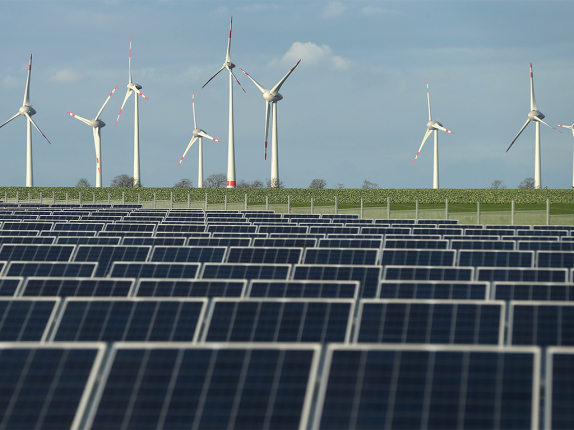The fact that large-scale renewable projects development started later in Latin America than in other locations, gives the region the possibility of adopting policies that have been successful in other places.
Contrary to what some may think the case of Spain is, in many ways, an example of what should not be done.
The country has only renewable native energy resources and an irrelevant carbon reserve.
Spain was the world leader in renewables and an important industrial, professional and services sector was created in the country.
Unfortunately, this development was not genuine or fruit of energy planning but the result of a custom deeply rooted in Spanish idiosyncrasy: “the pelotazo”.
Mess produced, common sense indicated to apply gradualism and long-term planning to at least preserve all that acquired know-how.
The government did the opposite.
Legal security was violated by sector regulation modifying and placed Spain on the podium of countries with most ICSID complaints.
It decreed a renewable moratorium, which has been going on for 7 years, causing small and medium-sized enterprises disappearance.
Only large companies with capacity to develop activity outside their borders survived.
In last 5 years, 1 renewable MW has not been installed.
In 2016, government has realized that it will most likely not meet European commitments made regarding renewables participation in its energy matrix.

The reaction has been to present an auction draft (made public last December 28th, Holy Innocents day) which shows, once again, the energy planning lack.
In the auction project:
* A Marginalist model is proposed in which the most expensive awarded price, fixed the one of previous awards.
This favors the appearance of proposals that will present reckless bid to be adjudicated and to obtain the most expensive price offered.
This criterion opposes the PAB (pay as bid), adopted in all successful international auctions.
* An Indeterminate Variable Price is proposed, a mathematical paranormal phenomenon that reflects State intervention in private activity and the total ignorance of renewable technologies operation by those who have drafted and in 2014 sanctioned the legislation that supports it.
This criterion also goes against the Fixed Cost Price per kWh offered , adopted in all international auctions that have obtained good results.
* A Technologically Neutral criterion is adopted instead of auctioning quotas for each renewable technology.
This is very dangerous because it leaves out younger technologies that now are less profitable than others, but could be more profitable in the future; as is the case of solar thermal in which Spain is the world leader.
It also goes against Technological Specification criterion, adopted in all the international auctions that have obtained good results in order to favor the renewable energy matrix diversification and several technologies development.
* There is no size discrimination. A portion of the auctioned amount is not reserved for plants under 10 MW.
* Prequalification is not required and there is no need for real projects.
It is an absurd and unreasonable proposal that turns renewable energy into a financial product and not into an energy policy tool that promotes employment and technological and industrial development.
It favors the macro projects and deepens energy sector concentration.
At international level auctions a low price concentration is taking place, with the consequent dominant position in few actors’ creation, which in long run will dilute the advantages of short term low prices.
Surely the auction will go ahead virtually unchanged and the 3000 MW will be awarded because after 7 years without business there is real desperation in the sector.
However, that auction is a success does not mean that all projects are going to materialize nor is it a guarantee that objectives will be fulfilled.
The explosive cocktail of Variable Indeterminate Price, legal uncertainty, huge initial investment, high financial leverage and yields even lower than 4% is very dangerous.
If it explodes, who will pay for the broken dishes of this irresponsible act ? We know the answer. Spanish citizens already had to “rescue” the bank sector and “compensate” energy sector.
The option of going outside auctions is not viable because in Spain there is no legislation that encourages or allows connectivity to set PPAs between private, but “Sun Tax”.

Renewable energies grid parity is already a reality in developed countries and in some developing countries.
If aid and subsidies received from fossil fuels had been withdrawn, it would have been much earlier.
If we consider auctions as the only tool to increase renewables participation, we will be keeping an obsolete energy matrix paradigm and making a very serious error.
The energy matrix of the future is based on 3 pillars:
1) Energy efficiency
2) Renewable energies
3) Distributed generation
Real energy revolution and citizen empowerment path goes through prosumer figure and energy cooperativism development.
Concentration and energy centralization route involves only changing fossils for renewables to maintain the “statu quo” for benefit of the usual suspects, who will continue to act as a collection agency in collusion with political power of turn.
Solar energy wherever you are with Sopelia.

¿Por que no hay un debate amplio y sereno sobre el sector energético que nos interesa a futuro?¿A quien le interesa que no haya ese debate?
Hola Julio. Gracias por tu comentario. Principalmente no lo hay porque es un tema que supera al plazo de gobierno de los políticos y no les interesa acordar a mediano y largo plazo. Solo sacar el mayor beneficio propio en su turno de gobierno. Saludos
Gracias por el artículo. Argumentos detallados y rigurosos de lo que no debe hacerse.
Gracias por tus comentarios Francisco. Saludos